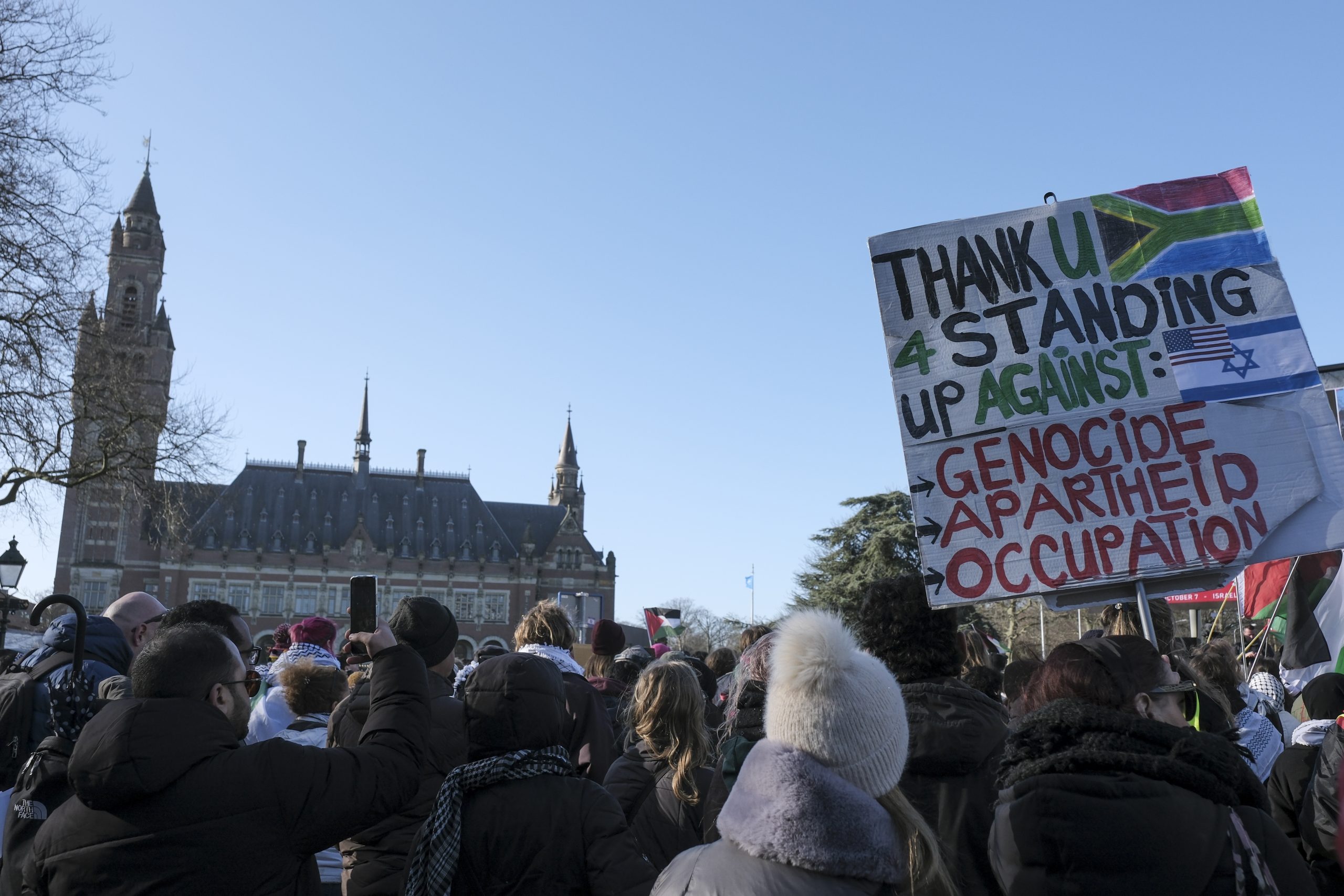The world watched closely as a panel of 17 judges at the International Court of Justice (ICJ)—the highest court of the United Nations—heard arguments earlier this month over whether Israel is committing genocide against Palestinians amid the ongoing conflict in Gaza, in a case brought forward by South Africa. Today, in a landmark interim order, the court determined that South Africa has legal standing and ordered Israel to “take all measures within its power” to prevent acts of genocide.
[time-brightcove not-tgx=”true”]
Justice Joan E. Donoghue, the presiding judge of the ICJ, began a public sitting at the Peace Palace in the Hague by saying that “the court is acutely aware of the extent of the human tragedy that is unfolding in the region and is deeply concerned about the continuing loss of life and human suffering,” before acknowledging that both parties have “clearly opposite views” on the matter.
In the court’s view, however, “at least some of the acts and omissions alleged by South Africa to have been committed by Israel in Gaza appear to be capable of falling within the provisions of the [Genocide] Convention,” Justice Donoghue said.
While the court did not order Israel to cease its attacks, it has nevertheless asked the Israeli military to adhere to the Genocide Convention by preventing and punishing incitement to genocide, as well as by providing humanitarian aid.
The judge also reminded the courtroom that the Jan. 26 decision is only an interim order, part of a wider, pending case that will likely not see a ruling for years. However, “the catastrophic humanitarian situation in the Gaza Strip is at serious risk of deteriorating further before the court renders its final judgment,” she added.
It’s unclear whether Israel will comply with the order—while the court’s decisions are binding, it has few means of enforcing the order. On Thursday, Israeli government spokesperson Eylon Levy told reporters that Israel expected the court to toss out the “spurious and specious charges.” But legal experts believe that Israel’s defense in court could make it difficult for the country to now dismiss court orders.
Nonetheless, it’s “a very significant finding from both a legal and political perspective,” Zinaida Miller, a Professor of Law at Northeastern University, tells TIME. She adds that it will most likely increase international pressure on Israeli Prime Minister Benjamin Netanyahu to curb the ongoing Israel-Hamas war, and that the Israeli government might “quietly comply” with certain measures because it will “see it as a way of heading off an unfavorable decision on the merits later on.”
What was South Africa’s case against Israel?
During a two-day hearing held on Jan. 11 and 12, South Africa told the ICJ that Israel’s actions in the Gaza strip violated the U.N.’s 1948 Genocide Convention, to which Israel is a party.
Lawyers for the South African government argued that Israeli leaders have intended to “create conditions of death” for Palestinians in Gaza. In court, they offered videos and public statements made by Israeli officials as evidence, including a statement made by Defense Minister Yoav Gallant in October, that Israel would impose a complete siege on the territory because it was fighting “human animals.”
Israel’s lawyers have categorically denied the genocide accusation, arguing that in late October, the country’s military gave civilians adequate notice to leave before the invasion. They also said that Israel enabled the supply of aid delivery after freezing it at the start of the war. As part of its defense, Israel declassified more than 30 secret orders made by government and military leaders to show Israeli efforts to limit harm to civilians.
The court, in deciding whether to impose some or all of the emergency measures requested by South Africa, needed to determine if Israel’s alleged actions were covered under the Genocide Convention, and whether the measures requested were indeed needed to protect the rights of Palestinians in Gaza.
Does the ICJ ruling matter if it’s non-binding?
The ruling has direct consequences on the assault that was launched by Israel in response to a Hamas-led attack on Oct. 7, 2023, where around 1,200 people were killed and some 240 were taken as hostages, according to Israeli officials. 25,000 people have been killed in Israel’s military operation since, Gaza’s health authorities say. More than 70% of casualties have been women and children, according to the U.N.
“Having the World Court say to the state of Israel that it is plausible that Israel is committing genocide will be heard by the rest of the international community, even if Netanyahu doesn’t want to hear it,” Zaha Hassan, a Middle East Fellow at the Carnegie Endowment for International Peace, tells TIME. Not only will it embolden international civil society in their calls for a ceasefire, it will also put pressure on the U.S. and President Biden to support a ceasefire or suspend military aid to Israel, she says.
In light of this, Millers adds that if “countries are sending weapons to Israel, or are in any way facilitating the mass atrocities in Gaza, they will have to consider their commitment under the 1948 Genocide Convention to prevent the crime from happening and to avoid complicity in it.”
The ICJ case, and today’s order, are also significant for other reasons. “It’s a moment when Palestinians have had a public airing of the structural violence and oppression they have long faced,” says Hassan, “and it holds the prospect of accountability for victims, something that has always eluded Palestinians.”
Both Miller and Hassan also nod to the fact that the case was brought by South Africa—a country that has its own history of race-based violence and apartheid.

